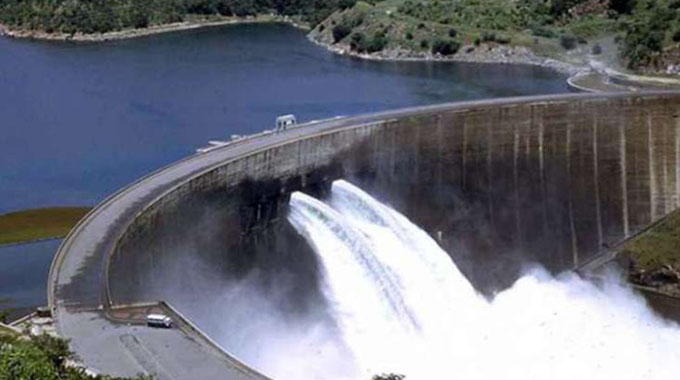EDITORIAL COMMENT : Essential to embrace alternative energy sources

Zimbabwe is facing serious power shortages affecting both industrial and domestic supplies after the Zambezi River Authority (ZRA) cut water allocations to Zimbabwe Power Company (ZPC) for the second time this year due to fast receding water levels in Kariba Dam.
Kariba Dam, from which Kariba South Power Station draws water for electricity generation, received sharply reduced inflows of water this past rainy season due to adverse weather conditions experienced in the Zambezi River catchment area.
ZRA has since rationed water consumption by Zimbabwe and Zambia’s power utilities, ZESA and ZESCO, which will see them generating at prescribed thresholds, 358 megawatts for Zimbabwe and 392MW for Zambia.
Electricity generation constraints at Hwange Power Station, operational costs such as water rates and diesel prices as well as limited imports are compounding power shortages.
The power shortfall has resulted in load-shedding to balance the power supply available and the demand.
With the need for long-term solutions to the power crisis in the country, the Government opened up the energy sector to private players so that they could come up with capital projects on energy to ameliorate power shortages.
The decision was met with enthusiasm as attested by a coterie of companies that bid to work hand-in-glove with the central authority towards energy provision.
However, this enthusiasm has not translated into work and we now hear that over 30 independent power producers (IPP) licensed to generate up to 5 000MW have been staring up the moon, and have not contributed anything towards power generation despite holding on to licences without executing the projects.
While it was not clear whether due diligence was done in issuing out the licences to the said potential investors in the first place, the prevailing power shortages demand urgent execution by those who won tenders to work on the power-generation projects.
Saddling with a huge electricity import bill, the Government has to establish why the independent power producers are sitting on their laurels, in the middle of such a power crisis.
The Energy ministry will need to re-look case by case to establish the ability and financial capacity of the 30 independent power producers to assist in power generation, as per agreement. Their silence in the middle of such a power crisis means there is a problem.
Addressing delegates during the Zimbabwe Annual Mining Conference in Victoria Falls, last week, Energy and Power Development Minister Fortune Chasi revealed that the Government was in the process of reviewing all licences to establish if the projects would be implemented in the short to medium term.
We welcome such a transformative decision to separate the hangers-on from real players who are eager to partake in the national development. It is within the same spirit that the Government should also be prepared to cancel licences for producers who are incapacitated to carry out the projects for one reason or the other.
In the new dispensation, we believe the days of rent-seeking behaviour, pseudo-contractors and “tenderprenuership” are over.
Tenders would need to be awarded on merit, coupled by a clean record of competency to ensure projects take off and are executed to completion.
It is undoubtedly clear that the country requires independent power producers to come up with projects that augment Government’s efforts in power provision across because it appears that this is one area stalling a lot of national projects.
With the cost of addressing the power infrastructure supply needs of Zimbabwe being estimated at US$8 billion, the bill is huge and the Government cannot foot it alone, hence the inclusion of independent power producers.
Such a huge gap in the energy sector provides opportunities for independent power producers to contribute meaningfully, without being complacent as is the current situation with the 30 IPPS.
The situation that the nation finds itself in now requires a paradigm shift by focusing on alternative sources of energy to keep the nation on the grind, while saving the country copious amounts of foreign currency that is being chewed up by electricity imports.
Moving to renewable sources of energy such as wind energy, hydroelectric energy, and solar energy can also help the country conserve fossil fuels (coal to be specific) and preserve the environment.
Solar energy has been touted as an efficient and more feasible option for a country like ours that enjoys beautiful sunshine the majority of the time in a year.










Comments